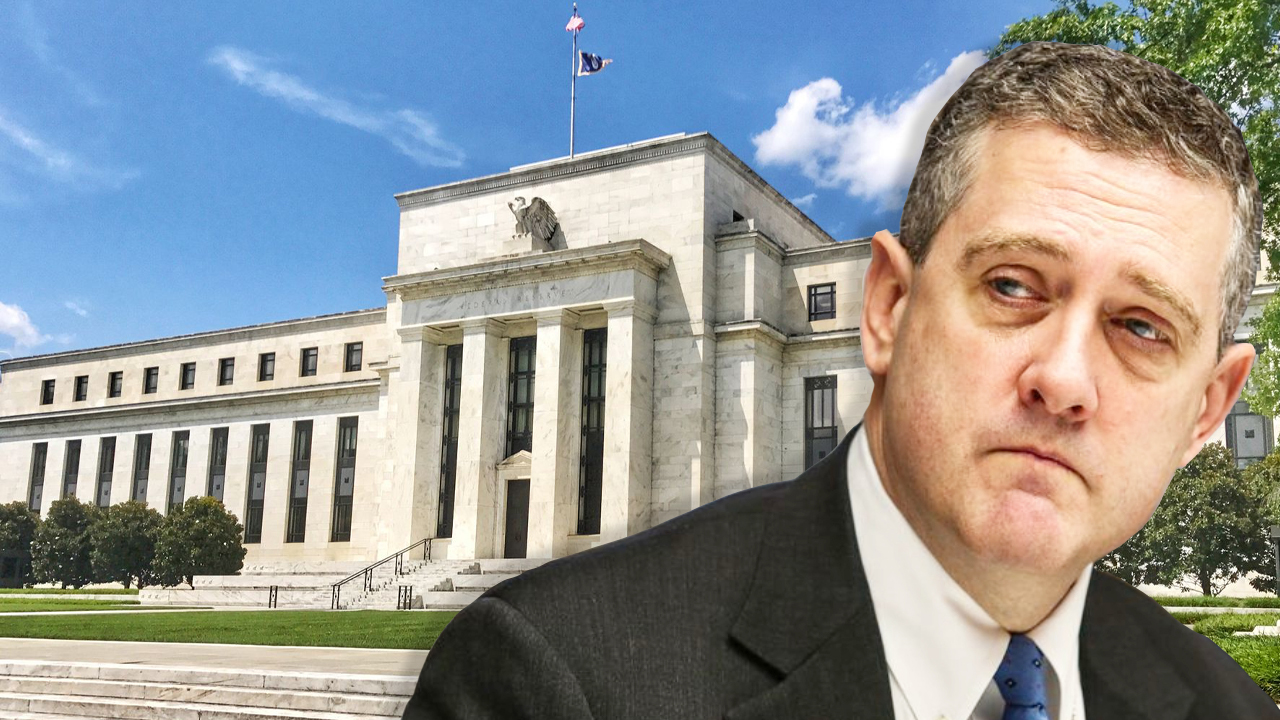Inflation continues to grip American wallets, according to a recent economic analysis from Moody’s Analytics, which shows inflation is likely costing the average U.S. household between $250 to $276 per month. Meanwhile, the U.S. Federal Reserve is expected to raise the benchmark interest rate in March and St. Louis Fed president James Bullard believes the Fed needs to “front-load” rate hikes.
St. Louis Fed President on Inflation: ‘People Are Unhappy, Consumer Confidence Is Declining’
Last week, the U.S. Labor Department published its Consumer Price Index (CPI) report which noted inflation jumped 7.5% higher than it was a year ago. Following the report, Moody’s Analytics notes that the average U.S. household is likely paying $250 to $276 a month due to the added inflation. As the days continue in 2022, the U.S. dollar’s purchasing power has decreased and the price of goods and services has increased.
Moody’s senior economist Ryan Sweet explained that a lot of Americans are feeling the burden of inflationary pressures. “A lot of people are hurting because of high inflation,” Sweet said. “$250 a month—that’s a big burden. It really hammers home the point of ‘what is the cost of inflation?’”
The chief executive officer and 12th president of the Federal Reserve Bank of St. Louis, James Bullard, made similar remarks on Monday. “The inflation that we’re seeing is very bad for low- and moderate-income households,” Bullard told CNBC. “People are unhappy, consumer confidence is declining. This is not a good situation. We have to reassure people that we’re going to defend our inflation target and we’re going to get back to 2%.”
Bullard also spoke about the Labor Department’s January CPI report published last week. “My interpretation was not so much that report alone, but the last four reports taken in tandem have indicated that inflation is broadening and possibly accelerating in the U.S. economy,” Bullard stressed. During the CNBC “Squawk Box” interview, the president of the Federal Reserve Bank of St. Louis added:
I do think we need to front-load more of our planned removal of accommodation than we would have previously. We’ve been surprised by the upside on inflation. This is a lot of inflation. Our credibility is on the line here and we do have to react to the data. However, I do think we can do it in a way that’s organized and not disruptive to markets.
San Francisco Fed President: ‘Fed’s Abrupt and Aggressive Action Can Actually Have a Destabilizing Effect’
Equities markets have felt the sting of a souring U.S. economy as Nasdaq, NYSE, and the Dow Jones Industrial Average all closed in red territories on Monday. Data shows bond markets have also signaled that investors are concerned about the Fed’s decision.
The president of the Federal Reserve Bank of San Francisco, Mary C. Daly, spoke about the Fed acting on inflation as well, but stressed to CBS’s “Face the Nation” that it needed to be a “measured [approach].”
“I see that it is obvious that we need to pull some of the accommodation out of the economy,” Daly explained. “But history tells us with Fed policy that abrupt and aggressive action can actually have a destabilizing effect on the very growth and price stability we’re trying to achieve.”
What do you think about Moody’s data on inflation? What do you think about the comments stemming from the two Fed presidents Bullard and Daly? Let us know what you think about this subject in the comments section below.






















